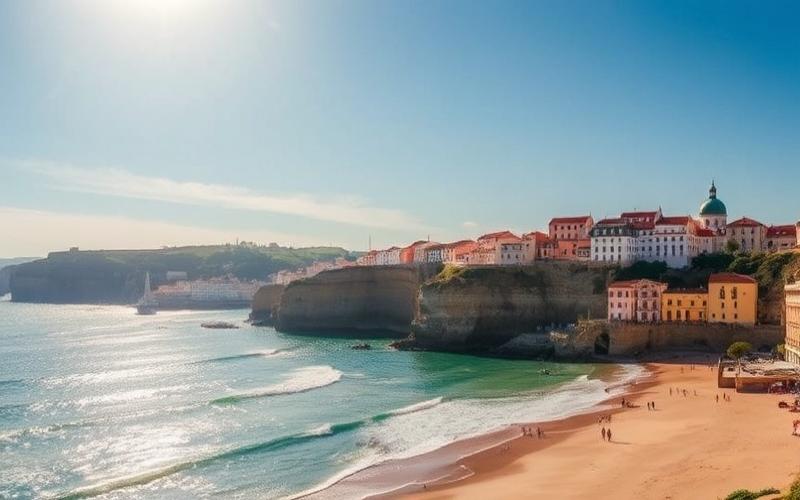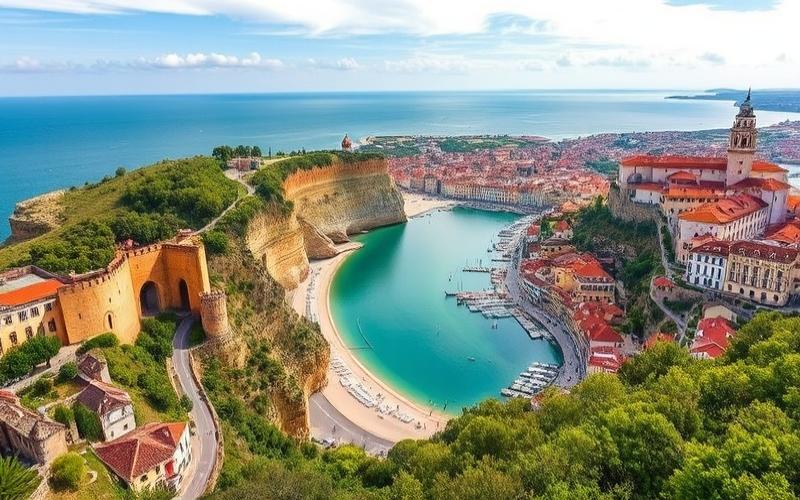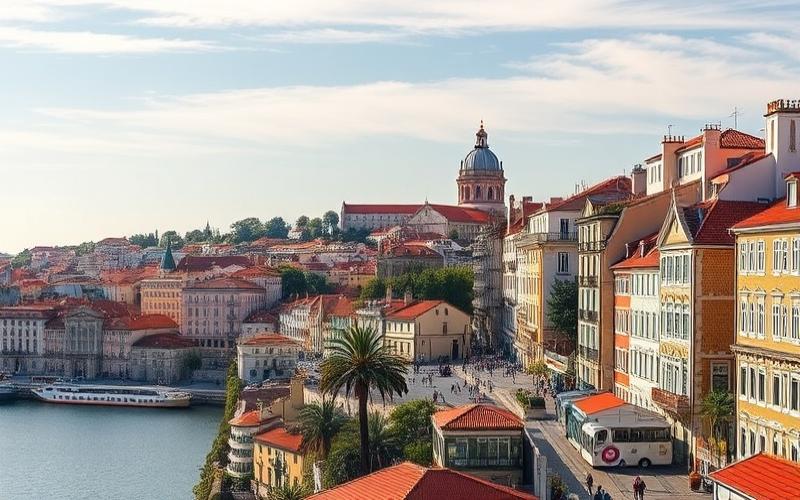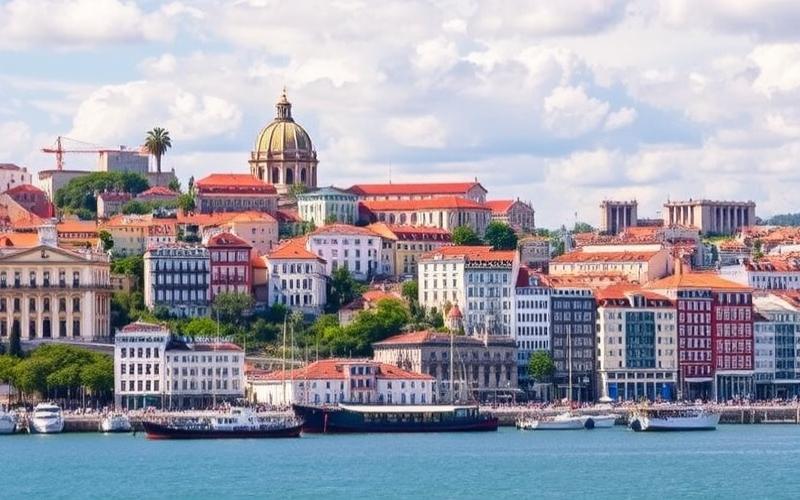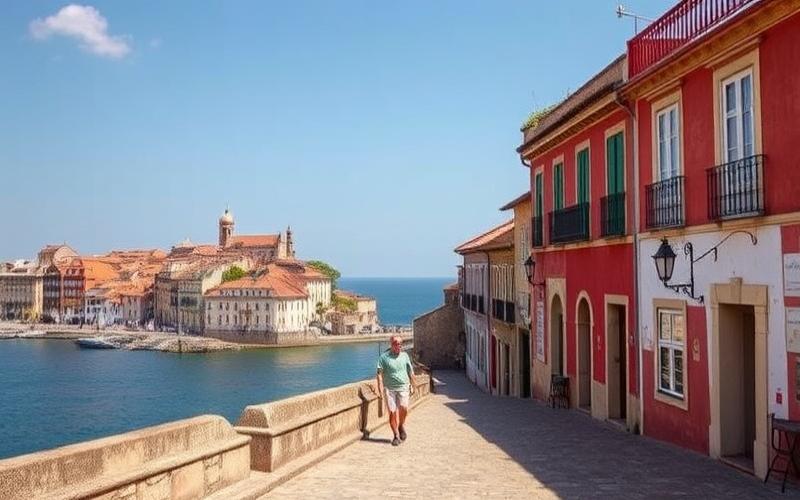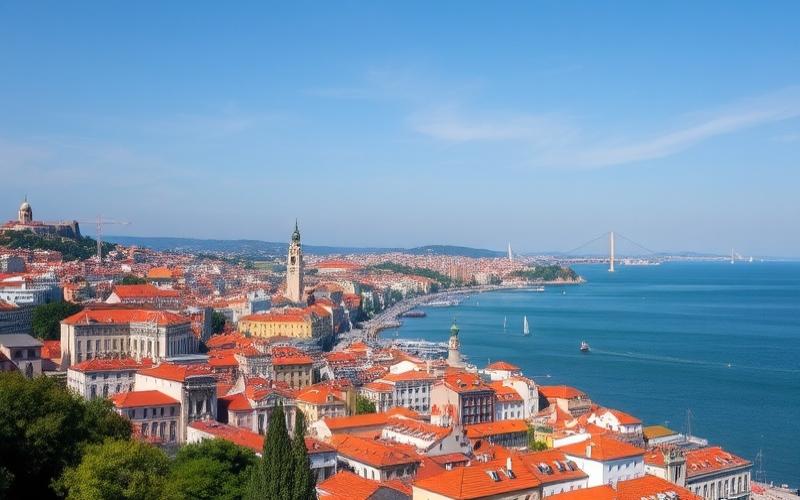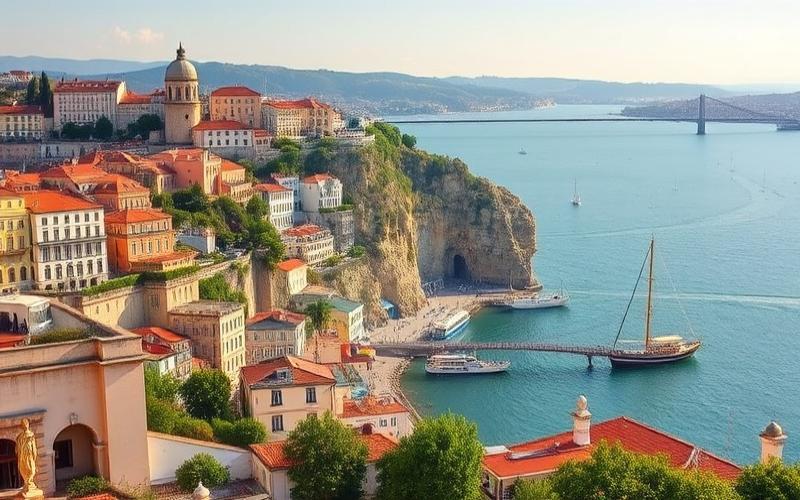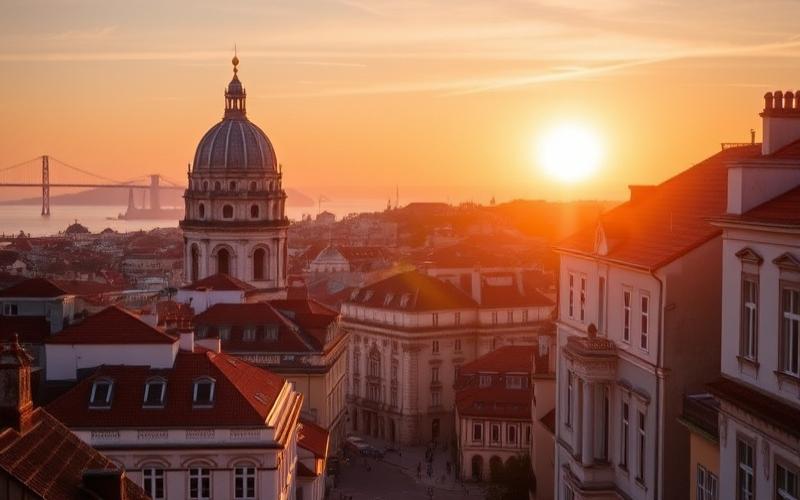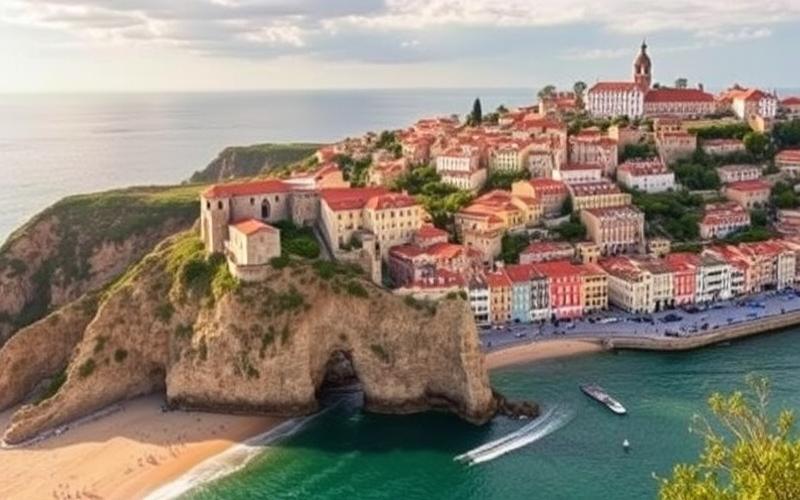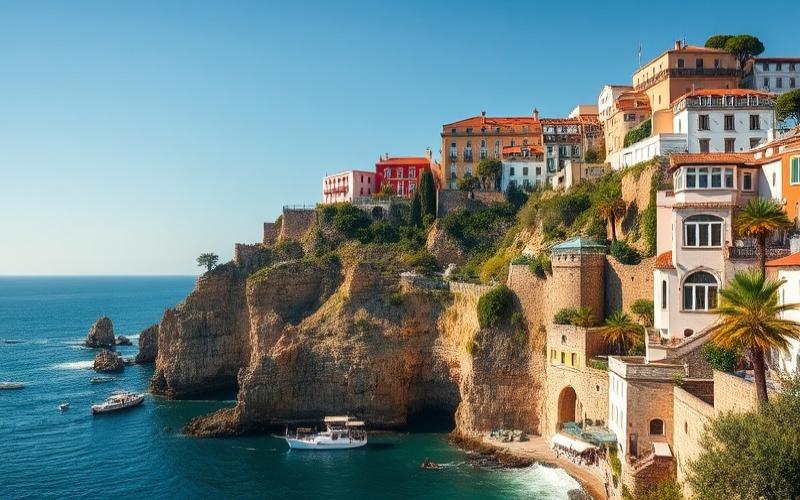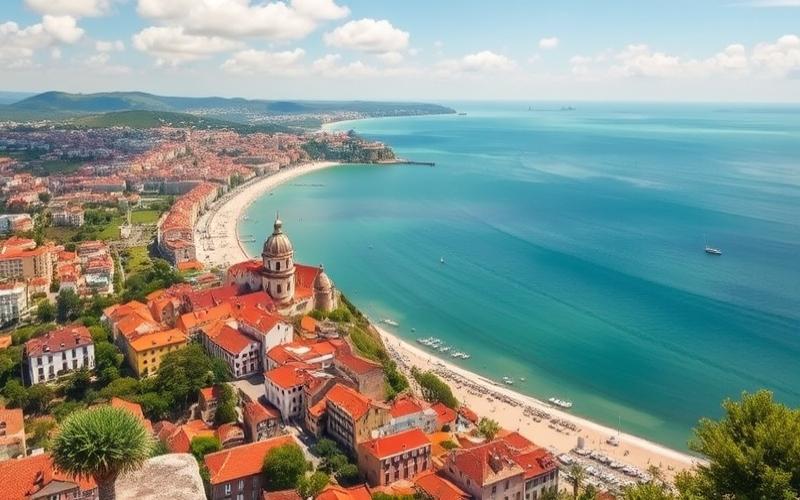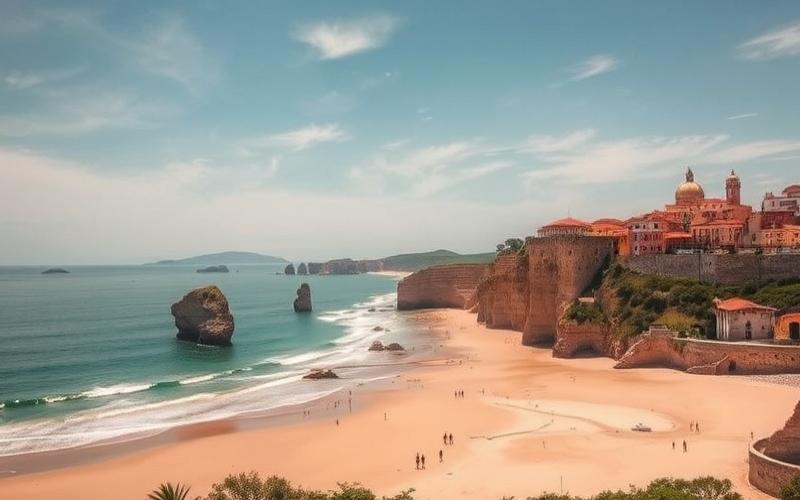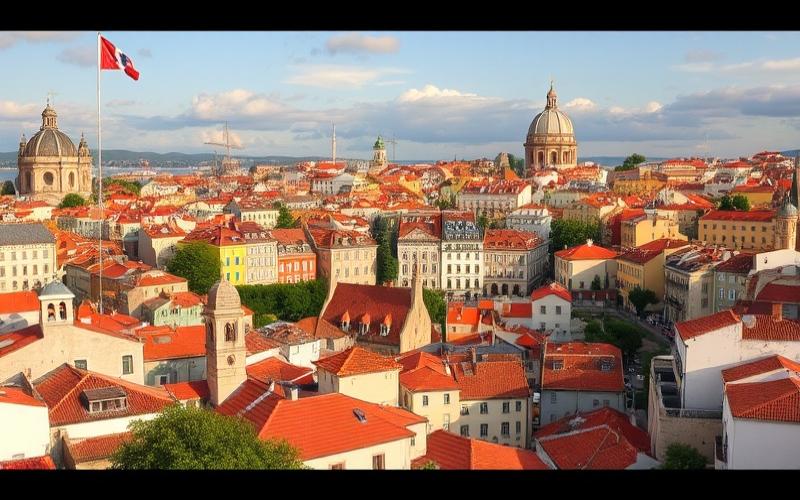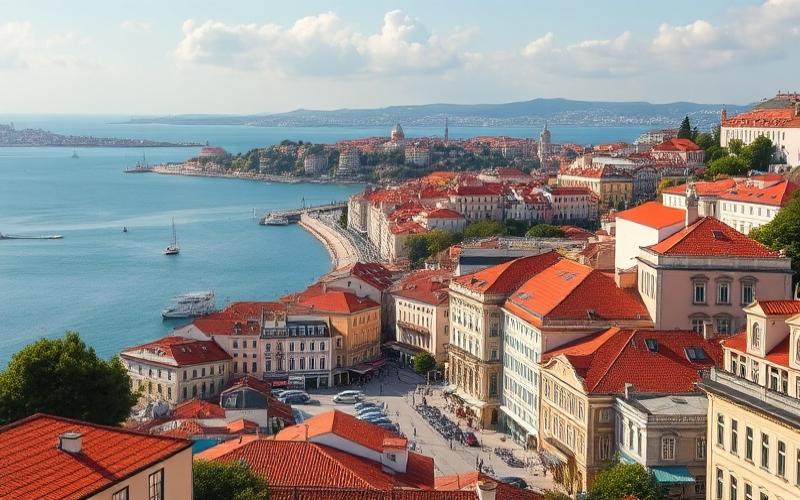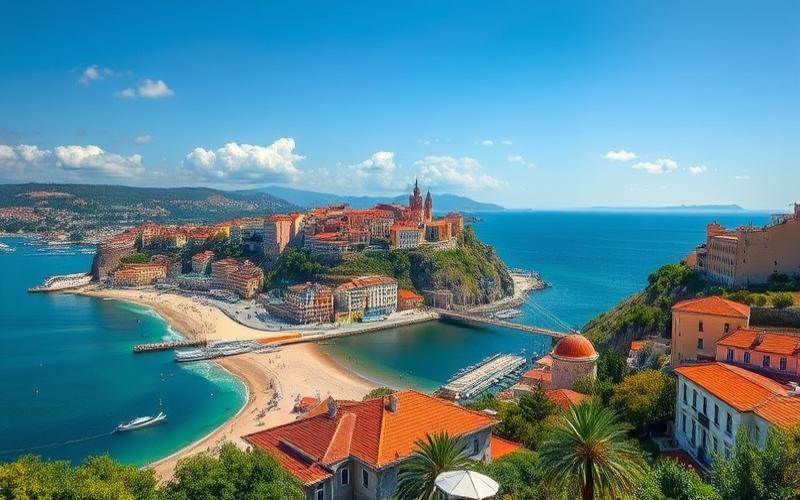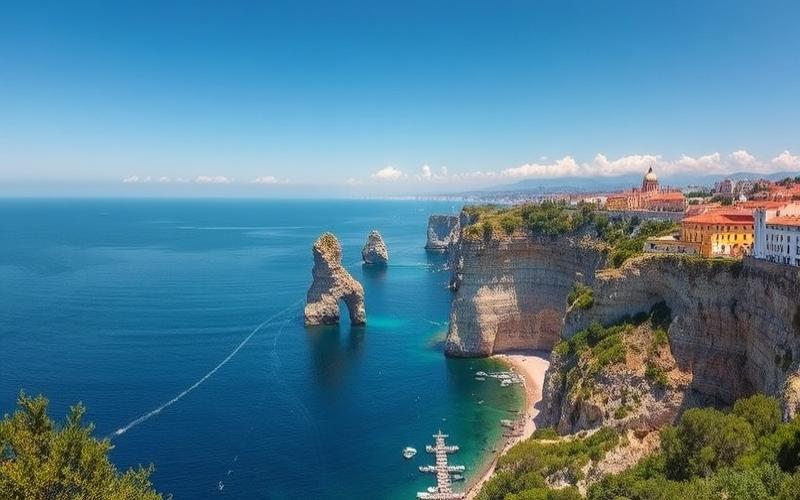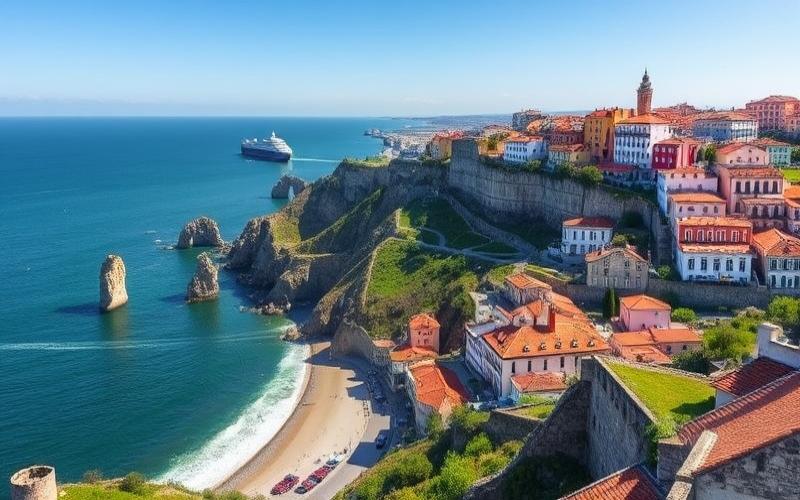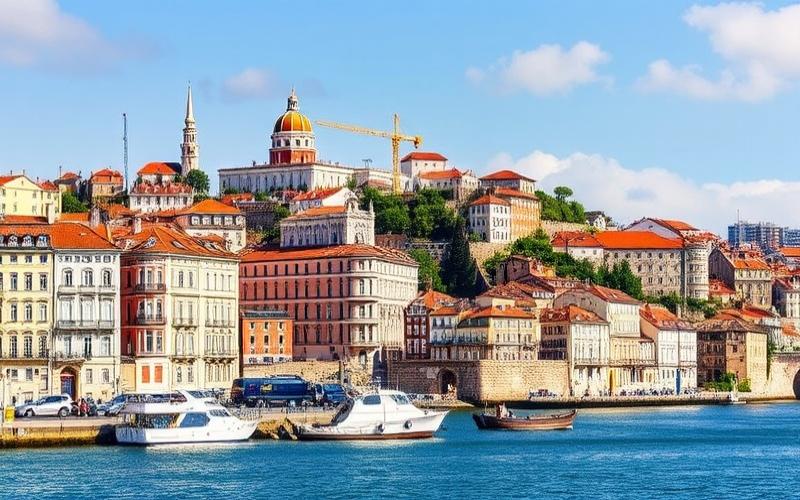
 Published on and written by Cyril Jarnias
Published on and written by Cyril Jarnias
Portugal’s history is a fascinating odyssey through the centuries, marked by conquests, discoveries, and profound transformations. For expatriates choosing to settle in this culturally rich country steeped in traditions, understanding its past is essential to fully appreciating its present.
Ancient Roots: Lusitania, the Cradle of Portugal
Before becoming the Portugal we know today, the territory was known as Lusitania. This region, inhabited by various peoples since prehistoric times, witnessed numerous civilizations that all left their mark.
The First Inhabitants and Diverse Influences
As early as 4000 BC, the territory of present-day Portugal was populated by Neolithic tribes, as evidenced by remains such as the Almendres Cromlech. Over the centuries, the region hosted a mosaic of peoples: Phoenicians, Greeks, Carthaginians, Celts, and many others.
Roman Domination and the Latin Legacy
In 219 BC, the Romans began the conquest of the Iberian Peninsula. They divided the territory into two provinces: Lusitania south of the Douro and Gallaecia to the north. This period profoundly influenced the culture and language of future Portugal, laying the foundations for modern Portuguese.
Good to Know:
The name “Lusitania” is still used today as a poetic reference to Portugal, and the Portuguese are sometimes called “Lusitanians” in a literary or historical context.
Birth of a Nation: From County to Independent Kingdom
The Christian Reconquest and the Formation of the County of Portugal
After the fall of the Roman Empire, the Iberian Peninsula experienced a tumultuous period, notably marked by the invasion of the Visigoths and then the Moors in the 8th century. It was in the context of the Reconquista, the Christian reconquest of the peninsula, that the County of Portugal was born.
In 1095, King Alfonso VI of Castile and León entrusted the government of the County of Portugal to Henry of Burgundy, who married his illegitimate daughter, Theresa of León. This county, centered around the city of Porto (then called Portus Cale), would become the nucleus of the future kingdom.
Afonso Henriques: The Founding Father of Portugal
The son of Henry and Theresa, Afonso Henriques, played a crucial role in Portugal’s history. In 1128, he won the Battle of São Mamede against his mother and her Galician allies, thus asserting his authority over the county. But it was in 1139, after his victory against the Moors at the Battle of Ourique, that he proclaimed himself King of Portugal.
International Recognition
On October 5, 1143, the Treaty of Zamora formalized Portugal’s independence. Afonso Henriques thus became the first King of Portugal, giving birth to one of Europe’s oldest nation-states. This independence was confirmed by Pope Alexander III in 1179.
Good to Know:
October 5th is doubly important in Portugal’s history, as it is also the day the Republic was proclaimed in 1910.
The Golden Age: Portugal Conquers the World
The Great Discoveries: When Portugal Ruled the Seas
The 15th century marks the beginning of an extraordinary era for Portugal. Driven by Prince Henry the Navigator, the country embarked on a series of maritime explorations that would change the face of the world.
In 1415, the conquest of Ceuta in North Africa opened the way for Portuguese expansion. Portuguese navigators explored the African coasts, discovered Madeira, the Azores, and Cape Verde. In 1488, Bartolomeu Dias rounded the Cape of Good Hope, opening the route to India.
The Zenith of the Portuguese Empire
The pinnacle of this period was reached with two historic voyages: – In 1498, Vasco da Gama reached India by sea, revolutionizing the spice trade. – In 1500, Pedro Álvares Cabral discovered Brazil, which would become the most important Portuguese colony.
During the 16th century, the Portuguese Empire spanned four continents, including territories in Africa (Angola, Mozambique), Asia (Goa, Macau, Timor), and South America (Brazil). Portugal became a global superpower, controlling vital trade routes and accumulating immense wealth.
Good to Know:
The Treaty of Tordesillas in 1494 divided the non-European world between Spain and Portugal, illustrating the power of these two nations at the time.
Decline and Rebirth: The Challenges of the Modern Era
Loss of Independence and Spanish Domination
The death of King Sebastian I without an heir in 1578 plunged Portugal into a succession crisis. In 1580, Philip II of Spain claimed the Portuguese throne, uniting the two crowns. This period, known as the Iberian Union, lasted until 1640.
The Restoration and the Challenges of the 18th Century
In 1640, a revolt led by the Portuguese nobility restored the country’s independence under the reign of John IV. However, Portugal had to face new challenges, including growing competition from other European powers in colonial trade.
The 18th century was marked by the reign of John V, who used Brazilian gold to fund ambitious architectural projects, and by the reforms of the Marquis of Pombal under Joseph I, especially after the devastating Lisbon earthquake in 1755.
The Napoleonic Invasions and the Loss of Brazil
At the beginning of the 19th century, Portugal was drawn into the Napoleonic Wars. The French invasion in 1807 forced the royal family to flee to Brazil. Although the country was liberated with British help, this period marked the beginning of the end of the Portuguese colonial empire, with Brazil’s independence proclaimed in 1822.
Good to Know:
Despite the loss of Brazil, Portugal retained colonies in Africa and Asia until the second half of the 20th century, making it the last European colonial empire to dismantle.
Modern Portugal: From Monarchy to Democracy
The End of the Monarchy and the First Republic
On October 5, 1910, a revolution ended the monarchy and established the First Portuguese Republic. This period was marked by great political and economic instability, exacerbated by Portugal’s participation in World War I.
Estado Novo: Salazar’s Long Dictatorship
In 1926, a military coup ended the First Republic. António de Oliveira Salazar took power in 1932, establishing an authoritarian regime known as the Estado Novo (New State). This dictatorship, one of the longest in Europe, lasted until 1974.
The Carnation Revolution and the Return to Democracy
On April 25, 1974, a peaceful military coup, known as the Carnation Revolution, overthrew Salazar’s regime. This revolution marked Portugal’s return to democracy and the beginning of the decolonization process.
Portugal in Europe
In 1986, Portugal joined the European Economic Community (now the European Union), marking the beginning of a new era of modernization and European integration. Since then, the country has undergone significant transformations, becoming a sought-after destination for tourists and expatriates from around the world.
Good to Know:
Despite economic challenges faced at the beginning of the 21st century, Portugal has managed to rebound and is now recognized for its quality of life, cultural dynamism, and openness to the world.
Portugal’s history is a fascinating tale of resilience and adaptation. From its ancient origins to its current status as a modern and welcoming nation, Portugal has preserved its unique identity while opening up to the world. For expatriates choosing to settle here, understanding this rich history allows for a deeper appreciation of the culture and traditions that make Portugal such a special country.
Disclaimer: The information provided on this website is for informational purposes only and does not constitute financial, legal, or professional advice. We encourage you to consult qualified experts before making any investment, real estate, or expatriation decisions. Although we strive to maintain up-to-date and accurate information, we do not guarantee the completeness, accuracy, or timeliness of the proposed content. As investment and expatriation involve risks, we disclaim any liability for potential losses or damages arising from the use of this site. Your use of this site confirms your acceptance of these terms and your understanding of the associated risks.

